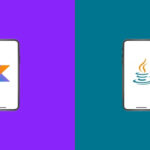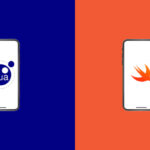Lua was originally designed as a lightweight scripting language for embedded systems but now Lua has evolved into a robust tool for a wide range of applications, from game development to scripting interfaces and beyond. Lua’s capabilities extend far beyond its humble origins. With its lightweight design and efficient execution, Lua stands out as a top contender for high-performance applications where speed is paramount. Its seamless integration with other languages and platforms opens doors to endless possibilities, while its simplicity and flexibility cater to developers of all skill levels and development styles. In this blog post, we’ll uncover the hidden potential of Lua and explore why it deserves a prime spot in your toolkit for app development projects.
Why you should use Lua for App Development?
1. Lightweight and Fast Execution
Lua boasts remarkable performance and efficiency, making it ideal for applications where speed is paramount. With its lightweight design and minimalistic syntax, Lua can execute tasks swiftly, making it a preferred choice for high-performance applications. Whether you’re developing games, embedded systems, or scripting interfaces, Lua’s speed ensures seamless user experiences without compromising on resource utilization.
2. Seamless Integration
One of Lua’s standout features is its seamless integration with other languages and platforms. Its flexible C API allows developers to embed Lua within existing codebases effortlessly. This interoperability opens up a world of possibilities, enabling developers to leverage existing libraries and frameworks while harnessing Lua’s simplicity and expressiveness.
3. Simplicity and Flexibility
Lua’s design philosophy revolves around simplicity and flexibility, making it an excellent choice for both beginners and seasoned developers. Its clean and intuitive syntax facilitates rapid prototyping and iteration, while its powerful features cater to diverse use cases. From procedural programming to functional and object-oriented paradigms, Lua adapts seamlessly to varying development styles and requirements.
4. Extensive Community Support
Despite its relatively niche status, Lua boasts a vibrant and supportive community of developers, enthusiasts, and contributors. From online forums and tutorials to official documentation and user groups, developers have access to a wealth of resources for learning and problem-solving. This strong community presence fosters collaboration, knowledge sharing, and continuous improvement within the Lua ecosystem.
5. Cross-Platform Compatibility
In an era where multi-platform compatibility is essential, Lua shines as a cross-platform solution for app development. Whether you’re targeting desktop, mobile, or embedded environments, Lua’s portability ensures consistent behavior across diverse platforms. This versatility simplifies deployment and maintenance, allowing developers to reach a broader audience without platform-specific headaches.
6. Embedded Scripting Capabilities
Lua’s lightweight footprint and embeddable nature make it an excellent choice for applications that require embedded scripting capabilities. Its small size and minimal dependencies make it easy to integrate Lua into existing software systems, allowing developers to extend functionality through customizable scripts. This embedded scripting approach enhances application extensibility and customization, empowering users to tailor the software to their specific needs without modifying the core codebase.
7. Efficient Memory Management
Lua’s garbage collection mechanism and efficient memory management contribute to its suitability for resource-constrained environments and performance-critical applications. Unlike some other scripting languages, Lua’s garbage collector operates incrementally, minimizing pauses and ensuring smooth application performance, even under heavy workloads. This efficient memory handling makes Lua an attractive choice for applications where memory usage optimization is crucial, such as embedded systems and real-time applications.
8. Active Development and Evolution
Lua benefits from a dedicated team of developers who actively maintain and evolve the language to meet the evolving needs of the software development community. Regular updates, feature enhancements, and performance optimizations ensure that Lua remains relevant and competitive in today’s dynamic technology landscape. This commitment to ongoing improvement fosters confidence among developers and ensures the long-term viability of Lua as a preferred choice for app development projects.
9. Strong Industry Adoption
Lua’s versatility and efficiency have garnered widespread adoption across various industries, ranging from gaming and multimedia to telecommunications and embedded systems. Its proven track record in powering successful applications and frameworks attests to its reliability and effectiveness in real-world scenarios. From small indie game studios to tech giants like Adobe and Blizzard Entertainment, Lua continues to play a significant role in driving innovation and powering cutting-edge solutions across diverse sectors.
Top-Tier Applications Utilizing Lua’s Capabilities:
Below are some famous applications that rely on Lua:
NASA’s Mars Exploration Rover mission:
NASA utilizes Lua for commanding and controlling rover activities, showcasing Lua’s reliability in mission-critical aerospace applications.
Adobe’s Lightroom photo editing software:
Adobe Lightroom leverages Lua for its plugin architecture, enabling seamless extension of functionality by third-party developers.
World of Warcraft (WoW):
World of Warcraft Incorporates Lua as its scripting language for UI customization and addon development, allowing players to personalize their gaming experience.
VLC media player:
VLC utilizes Lua for scripting and extensions across multiple platforms, enhancing its functionality on Windows, macOS, Linux, and mobile OS.
Corona SDK game development framework:
Corona SDK leverages Lua for rapid development and smooth performance in mobile game development.
Redis in-memory data store:
Redis uses Lua for scripting within its database engine, enabling execution of complex operations directly within Redis.
Roblox:
Lua scripting language empowers developers worldwide on the Roblox platform to create immersive experiences with simplicity and flexibility.
In conclusion, Lua is a strong choice for app development due to its simplicity, flexibility, power, performance, and integration capabilities. It is a lightweight, easy-to-learn programming language that is designed to be simple and efficient. It is also highly flexible, which makes it a great choice for building custom apps that are tailored to specific business needs.
Frequently Asked Questions:
Can you make an app with Lua?
Yes, Lua can be used to create various types of applications, including desktop, web, and mobile applications.
Is Lua used for mobile app development?
Yes, Lua is used for mobile app development. While it may not be as common as languages like Java or Swift for native mobile app development, Lua is often used in conjunction with frameworks like Corona SDK, Gideros Mobile, and Moai SDK to develop cross-platform mobile applications.
What coding apps use Lua?
Some popular coding apps and frameworks that use Lua include Corona SDK, Gideros Mobile, Love2D, and Roblox.
Does Android support Lua?
Yes, Lua is supported on Android. You can embed Lua scripts within Android applications using various frameworks or libraries like Corona SDK or by directly integrating Lua interpreter libraries into your Android projects.
Does iOS support Lua?
Yes, iOS supports Lua. Developers can integrate Lua scripting into iOS applications using frameworks like Corona SDK, Gideros Mobile, or by embedding Lua interpreter libraries directly into their iOS projects.
Can you make mobile games with Lua?
Yes, you can make mobile games with Lua. Lua is commonly used for mobile game development, particularly in frameworks like Corona SDK, Gideros Mobile, Love2D, and in platforms like Roblox.


